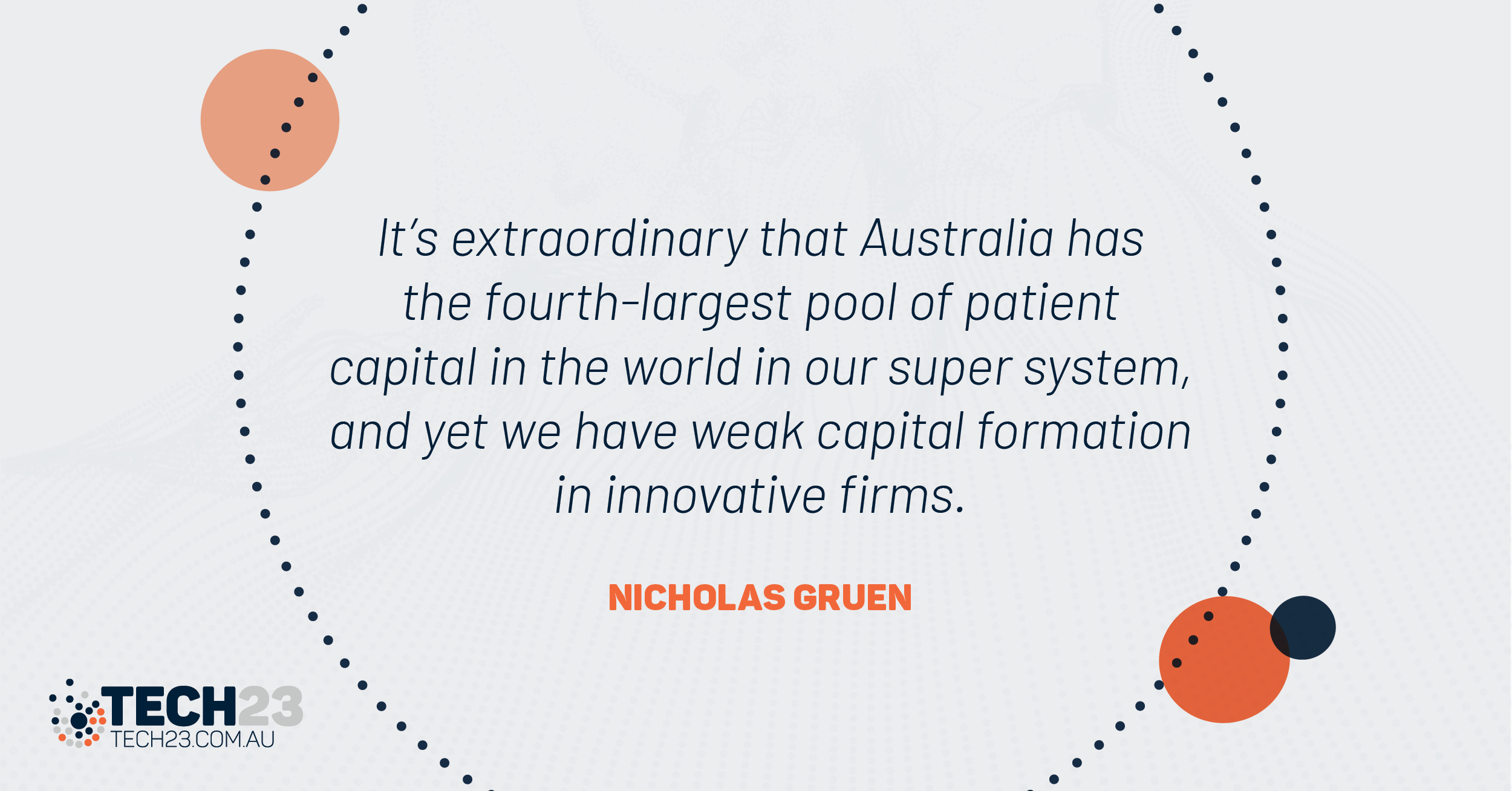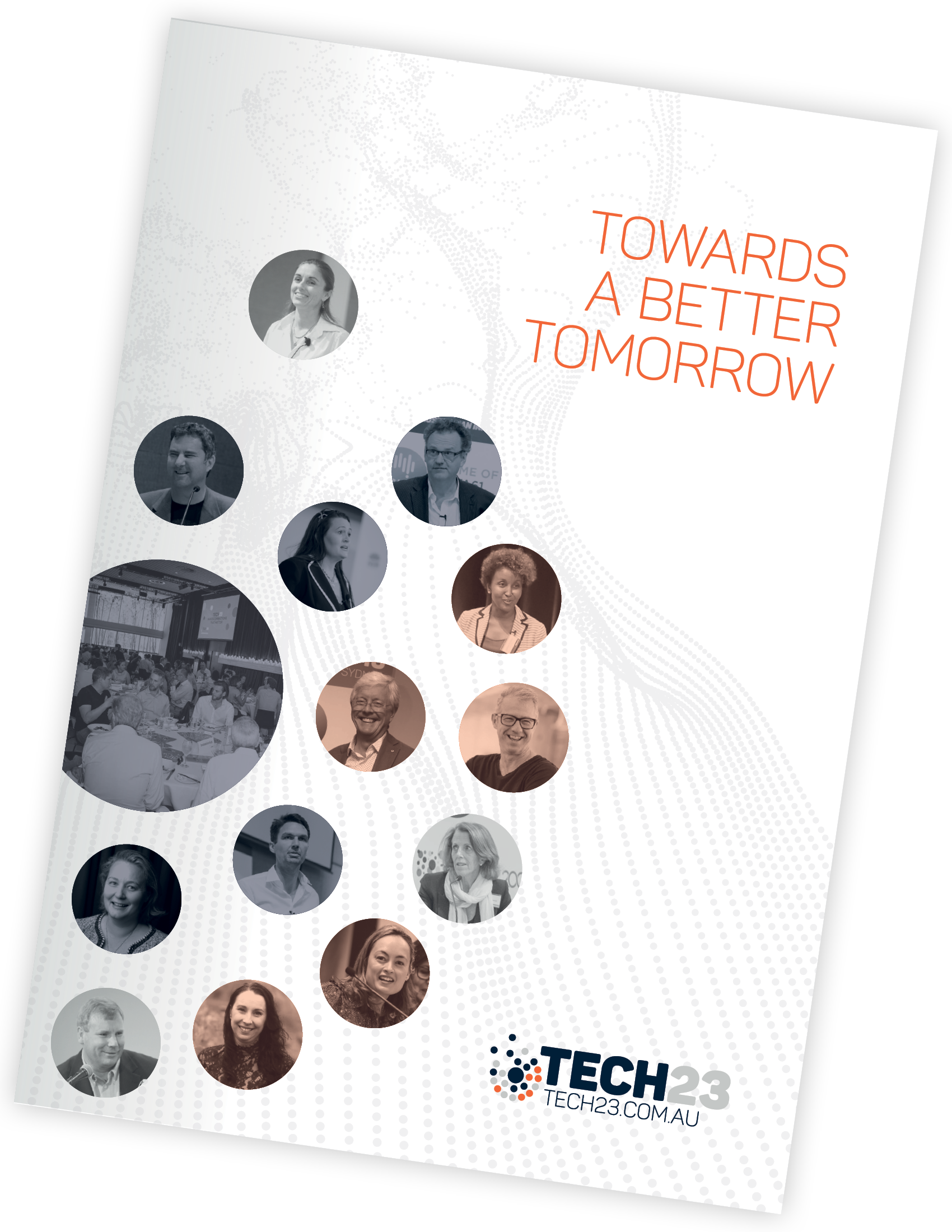By Nicholas Gruen
CEO, Lateral Economics

This article is an excerpt from the Tech23 2021 booklet Towards a Better Tomorrow.
Today Mark Zuckerberg is a pretty bad actor in my opinion, but he did some brilliant work to get Facebook where he got it. Where MySpace was milking its site to maximise revenue, he was creating a better experience. These kinds of opportunities – which now have their very own cliche, ‘disruptive technology’ – are absolutely everywhere, just like they were after the invention of the printing press, because now we’ve invented the internet.
Now to really find what’s possible in this world, you have to engineer for surprises.
But in business, but particularly in government, managers spend a lot of their time role-playing how they’re in charge. In government that means that grant programs are predicated on the idea that those seeking the grants can tell some assessment group what it is they’re going to do. Now it’s certainly problematic what we should do, but there’s something completely nutty about what we do do, because grants for innovation are grants to do something new! Obviously those doing serious innovation can’t say what they’re going to do!

Our whole system is caked with this stuff – our research grants are run through this process. Only a small minority of applications get funded. Yet they require huge amounts of documentation. So there’s vast waste. And it’s also humiliating. The generalists sit smiling at the top of the hierarchy making policy and writing cheques about things they have no experience of while those who are dedicating their lives to trying to make progress in the field are humiliated not just by their role as supplicants, but also because they’re forced into spin. And spin is the antithesis of science. As the great Richard Feynman put it “the first rule in science is that you must not fool yourself and you are the easiest person to fool”.
So there are lots of problems there. One thought I had is experimenting with retrospective grants. I’m thinking about people who have clearly achieved something extremely exciting, but don’t yet have the proof. We might hold out the prospect of healthy rewards to the best ten successes, on condition that the grant is reinvested.

I don’t think there’s too much problem at the very front end of innovation, I think the problem is all in growing and in capital formation. It’s extraordinary that Australia has the fourth-largest pool of patient capital in the world in our super system, and yet we have weak capital formation in innovative firms. We’ve got very bad Valley of Death problems in Australia and I would like to see us try to address that, rather than more programs subsidising startups and on that old chestnut of ‘commercialising’ university research.
What I do and what works out quite well for me is to back people who I judge to be:
- Decent
- Interesting
- Working on something that might do the world some good
- Have a chance of making lots of money!
And that list is in order of importance for me as an investor.
Read the perspectives of innovators in our midst
This article is an excerpt from the Tech23 2021 booklet Towards a Better tomorrow.

Read more…
Nurturing innovation from concept to commercialisation
By Dr Charlie Day CEO, Jupiter Ionics, past CEO, Office of Innovation and Science AustraliaThis article is an excerpt from the Tech23 2021 booklet Towards a Better Tomorrow.The deeptech commercialisation landscape in Australia has changed significantly in recent...
Thoughts on growing an ecosystem
By Ed Husic Member for Chifley, Shadow Minister for Industry and InnovationThis article is an excerpt from the Tech23 2021 booklet Towards a Better Tomorrow.Innovation has been in our DNA, we’ve had to be clever, smart problem solvers to survive in Australia over...
We need to up the ante on skills investment
By Ian Buddery Chair, Maestrano, Critical Arc and 6clicks; advisory board member GroguruThis article is an excerpt from the Tech23 2021 booklet Towards a Better Tomorrow.The landscape has transformed in the 40 years that I’ve been in the software industry. We’ve gone...

